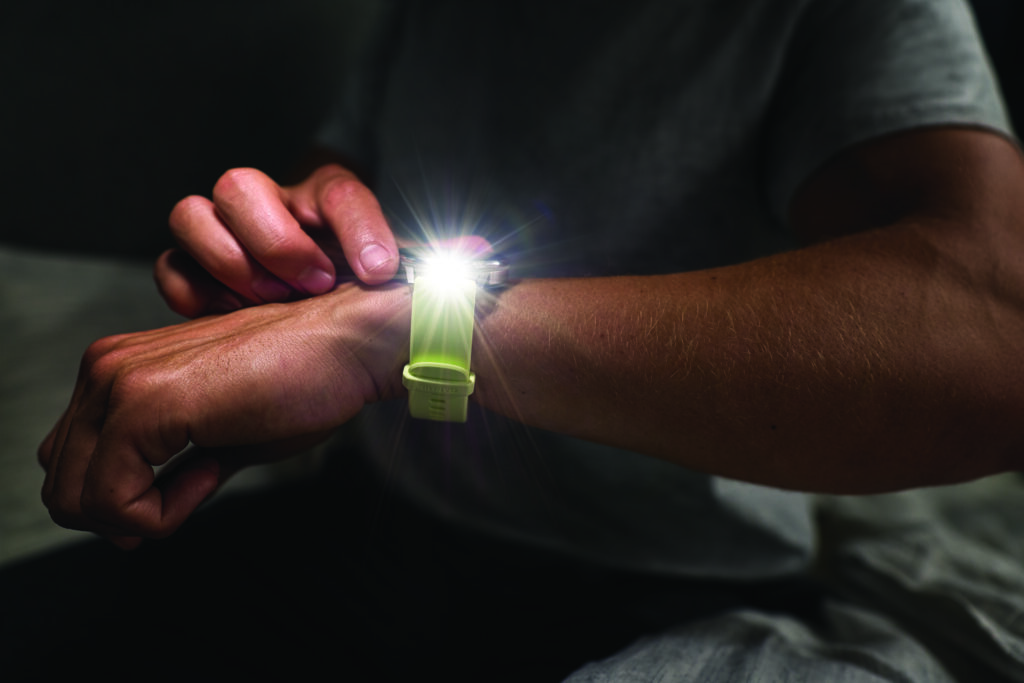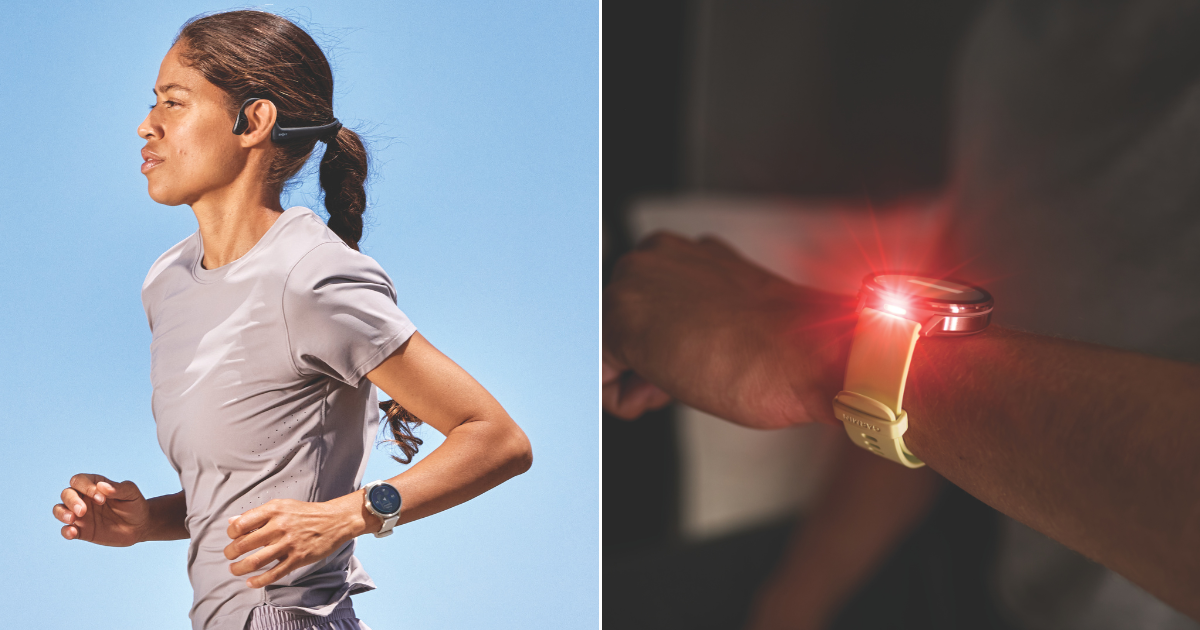Follow us on Instagram, TikTok, and WhatsApp for the latest stories and breaking news.
When most people think of Garmin, they picture marathon runners, cyclists, and triathletes sporting GPS watches.
But Garmin’s evolution over the past decade shows a company that’s quietly transforming from a sports tech pioneer into a digital health powerhouse
Garmin Health Senior Director Jörn Watzke explained to SAYS Tech how the brand’s focus has shifted towards becoming an all-day health companion, one that goes far beyond counting steps and tracking workouts.
“Garmin smartwatches are now much more than activity trackers – they are 24/7 health and lifestyle tracking devices,” Watzke said.

The Garmin Venu 4 in action.
Image via Garmin
Garmin Health was founded in 2014, and its mission has been to take the company’s decades of expertise in sensor technology into new territory: digital health
“High quality sensor data has been the foundation for digital health solutions involving analytics like heart rate, oxygen saturation in blood, respiration level, sleep phases, stress, body battery, heart rate variability and other biometrics,” Watzke said.
That same data, collected 24/7 thanks to Garmin’s famously long battery life, now powers research collaborations and healthcare monitoring systems across the world.
“By capturing data 24/7 – made possible by the long battery life of many Garmin smartwatches – Garmin Health collaborators have been able to create a wide variety of innovative applications for research, healthcare and remote patient monitoring.”
A recent partnership with King’s College London highlights Garmin’s growing reputation in the digital health space.
 Image via Garmin
Image via Garmin
If you’ve ever looked at a health dashboard full of graphs and numbers and wondered, “Okay, but what does this mean?”, you’re not alone.
Watzke acknowledges that data overload is one of the biggest challenges for users and Garmin’s approach is to simplify.
“Even the best data brings little to no value if it’s not quantified in a way that consumers can understand.”
Instead of flooding users with unreadable metrics, Garmin translates complex biometrics into digestible insights like Sleep Score, Body Battery, and Stress Score — each backed by explanations and personalised advice.
“Garmin smartwatches and the Garmin Connect app provide customised analyses and personalised recommendations… and then use a ‘sleep coach’ to offer advice on how to improve your sleep quality going forward.”

Garmin Health Senior Director Jörn Watzke (left).
Image via Garmin
Garmin’s newer features show a clear shift towards mental wellbeing and holistic health. While the brand is still a favourite among athletes, Watzke says it’s just as useful for the everyday person who wants to manage stress or get better sleep.
“Stress score is another useful Garmin feature that isn’t dependent on being an athlete or even fitness focused. Even HRV – which is regularly associated with physical training – can be a useful indicator of how your body is adapting to physical stressors like illness.”
Garmin has even introduced Lifestyle Logging, which allows users to track things like caffeine intake, alcohol consumption, and eating times — helping people connect everyday habits to how they feel.
“Lifestyle logging is a newer feature that allows Garmin users to track things like alcohol consumption, caffeine intake, eating times and other lifestyle factors that might contribute to heightened anxiety, poor sleep and lower HRV.”
Garmin is also tapping into the growing interest in predictive health by detecting subtle signs of illness before symptoms appear
“Things like a sudden decrease in sleep score or HRV, as well as an abrupt rise in resting heart rate, can all indicate the body reacting to something.”
The company’s inclusion of ECG monitoring in several smartwatches further cements its position as a serious player in early health detection.
“Garmin also offers its ECG app for detection of irregular heartbeats on many of its smartwatches, another useful feature for people worried about their cardiac health.”
In a time when users are increasingly wary of how their health data is used, Garmin takes a firm stance on privacy and platform flexibility
“User data is never sold or shared with a third party… All API and SDK collaborators must receive that permission before accessing any user data.”
Unlike some competitors, Garmin’s wearables are platform-agnostic, meaning they work across Android and iOS and can integrate with thousands of partner apps and services.
Looking ahead, Watzke envisions a future where smartwatches play a central role in healthcare — not just fitness.
“It will become standard practice for a physician or medical provider to consult Garmin biometrics to better treat and care for patients.”
From pioneering GPS watches in 2003 to developing predictive health features in 2025, Garmin’s story mirrors how wearables have matured: from gadgets for athletes to powerful tools for anyone seeking to live a healthier, more balanced life.
Follow SAYS Tech on Facebook, Instagram, & TikTok for the latest in tech in Malaysia and the world!

